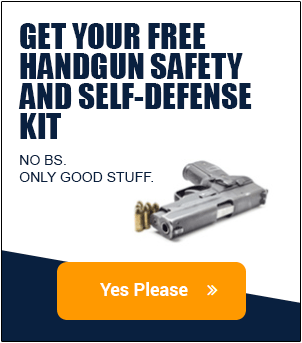Because of my interests, I often find myself in the company of people who are staunch gun control advocates. Oddly, many of them listen intently when I tell them I carry. People are scared of gun violence and for good reason: the juicy headlines do their work, and gun violence is a true problem in this country.
There is some good news, however. As of 2013, gun violence was at its lowest point in 20 years according the Pew Research Center. Perhaps you live in your gun culture bubble and opposing views on handguns and concealed carry don’t become exposed to you on a personal level. Good for you, but you should get out more. I think it’s important for concealed carry advocates to enter into discussion when appropriate and enlighten people to the fact that we are not all of one stripe.
We come in different faiths, colors and sexual orientations. My husband is a liberal Jewish man and a defender of the Second Amendment. My brother is a complete gun nut—he carries and is now hunting to provide food because he doesn’t support corporate farming practices. We run the gamut. Here are some ways to approach a conversation with someone who is decidedly anti-gun and anti-concealed carry.
Don’t become emotional. It’s tough, I know, but raising your voice and using intimidating body language will not engage the party. Use a steady and calm tone, and maintain eye contact if you want to be heard.
Don’t tell them their concerns aren’t important. Gun violence is a real issue in this country—it’s one reason you are armed, to protect yourself and your family. But denying that there is a problem is not only you defending a falsehood, it’s you dismissing their fears and concerns. Try and respect their views as well.
If you want to be taken seriously, arm yourself with statistics. Do your research and know what you’re talking about. Some statistics are ugly, that’s for sure. But prepare yourself to counter notions that guns in the home are a widespread epidemic in need of treatment. There is data out there to support all these things…rates of gun deaths, types of guns sold, crime statistics. Use ’em.
Express your own concerns. Without becoming over emotional, speak about your own fears relating to the safety of your home and your family. Explain why self-defense is important to you on a personal level.
Try to avoid politics. Once you bring politics into the mix, all rationale goes out the window and then it’s even more of an us-versus-them argument. Speaking about legislation is one thing, bashing politicians won’t legitimize your stance. No need to resort to attacking the person’s character, like name calling or other insulting attacks—you’re smarter than that.
Bring up the issue of marginalized groups or sectors of the population that are targets of violence. Many people will listen when they understand that some people carry concealed based on past experiences and that they refuse to be victimized again. Women are targets for robbery and sexual assault. Gay men and women have been battered and murdered. These are people, who, through their experiences, made a conscious decision to protect their own lives. How can you fault someone for wanting to protect their life? And shouldn’t you take the protection of your life into your own hands as well?
Concealed carry can be a polarizing topic. But I don’t think we should shy away from it. Be calm and respectful in conversation, and use these tips. You might just open some eyes.


